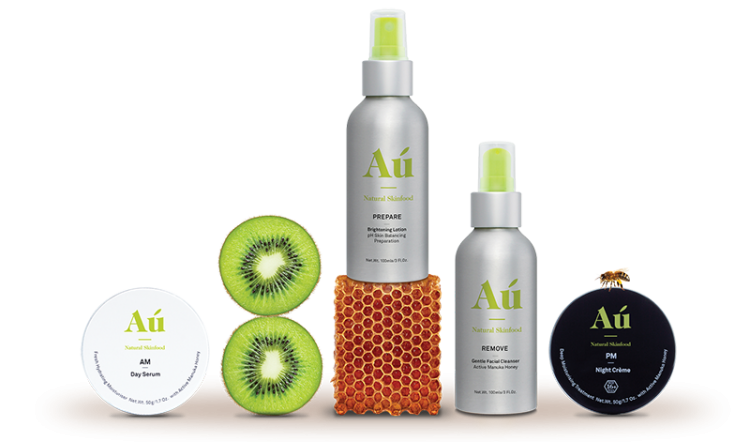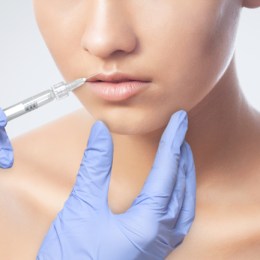 Aú Natural Skinfood, a Christchurch-based natural skincare brand, has become the first brand in the world to deliver a complete skincare range using 100% reusable, compostable or recyclable packaging, 7 years ahead of the sustainability pledge made recently by international brands L’Oréal, Unilever, Coca-Cola and Nestle to achieve this by 2025.
Aú Natural Skinfood, a Christchurch-based natural skincare brand, has become the first brand in the world to deliver a complete skincare range using 100% reusable, compostable or recyclable packaging, 7 years ahead of the sustainability pledge made recently by international brands L’Oréal, Unilever, Coca-Cola and Nestle to achieve this by 2025.
With over 480 billion new bottles entering landfills each year, single-use plastic packaging poses one of the largest threats to our environment today. With this in mind, Aú Natural Skinfood set out to create a skincare range that eliminates the need for single use plastic; with plant-based eco-refills, reusable containers, and reduced packaging size.
CEO and Founder of Aú Natural Skinfood, Tony Ahern, says “Reuse, Reduce and Recycle” is the philosophy behind the Aú Natural concept, and it’s a mantra that myself and my team keep in mind in our everyday life. We want to help people understand that small day-to-day decisions, such as choosing eco-friendly skincare, can really have a positive impact on the environment. Making these small changes on a mass scale, will help solve the plastic pollution problem our world is facing.”
So what is AU Natural Skinfood doing differently to achieve this and where are other brands falling short? According to Brand Manager Maria Giulia Virgolini, the focus is on the entire product range and the delivery process.
“We started not just looking at eliminating single-use plastic bottles but also all the related inner and outer packaging that goes with the delivery or distribution of products, right down to the courier bags,” says Virgolini. “Not only did we replace single-use plastic bottles with re-useable aluminium containers which are refilled by plant-based eco pouches, we also ship in re-useable tin boxes, we replaced the internal cardboard fillers with re-useable 100% cotton bags, and we ship with home-compostable plant-based courier bags. Our philosophy is ‘Re-use, Reduce, and Recycle’, and we deliberately have ‘recycle’ as a last resort, as there are more sustainable solutions normally available with a little bit of effort. Our plant-based eco refills and courier bags are carbon negative, which means they consume more carbon than they produce.”
“Another advantage has been the 75% reduction in carbon footprint across the delivery chain. The aluminium jars and bottles are 75% of the volume of traditional consumer skincare brands (for the same size of products). This impacts across the carbon footprint in manufacturing, warehousing, distribution, wholesale and even in the final delivery van – simply it takes a lot less energy and space through the supply chain.”
The products themselves are all formulated from pure, natural ingredients that are ethically sourced from New Zealand.
In Auckland this year, as part of World Environment Day, twelve local and international businesses signed a declaration to use 100 per cent reusable, recyclable or compostable packaging by 2025. But many fear that problems still lie in the quantity of packaging material produced, not just the nature of the material itself.
“This is great news, although we believe that the key to solving the problem of plastic pollution is reducing the production and use of single-use plastic itself, rather than simply finding new ways of disposing of it,” says Virgolini.
Aú Natural Skinfood’s goal during this move is to raise consumer awareness, encouraging the reuse of empty packaging and bringing focus to our individual environmental footprint.
“Decision makers in households can make a difference by making small changes. We want to make sure we lead by example and that the lifecycle of our materials is maximised, that usage is optimised and when exhausted, the materials can be fully recycled, ensuring along the way that we reduce our footprint,” says Virgolini.
“We see disrupting the cosmetic industry in this time of change as being very real – we challenge our subscribers to put less chemicals on their bodies, to ask questions about ingredients, to be aware of the percentage of active ingredients in their cosmetics and to think about what they are washing down the drain into our water works. If customers start demanding change then the cosmetic industry will meet these demands, and that would be a great achievement.”




